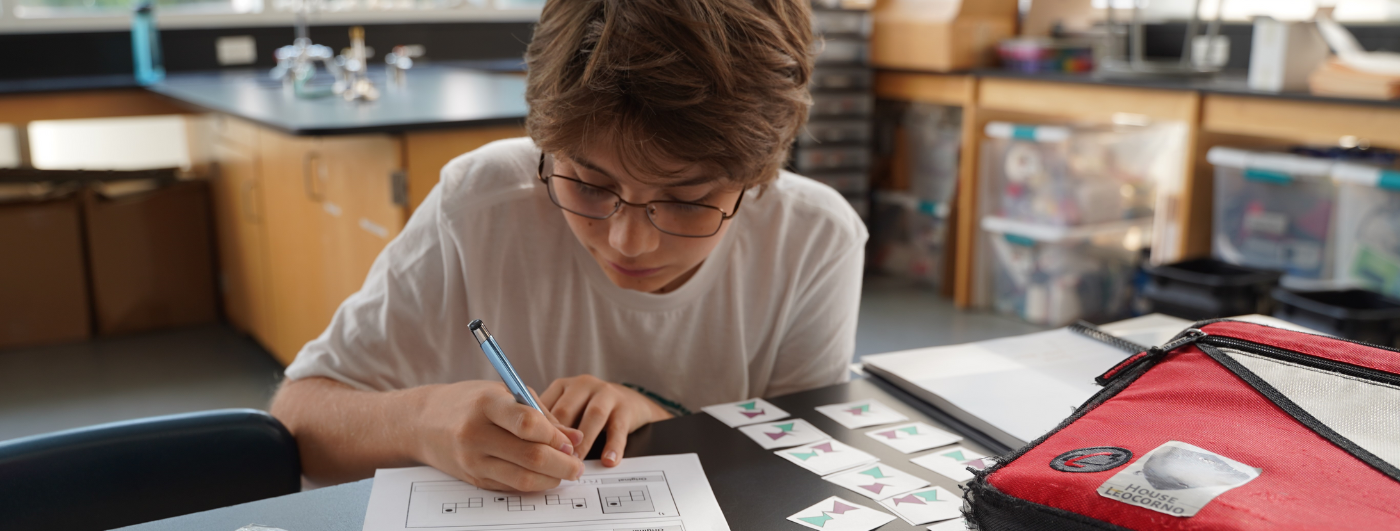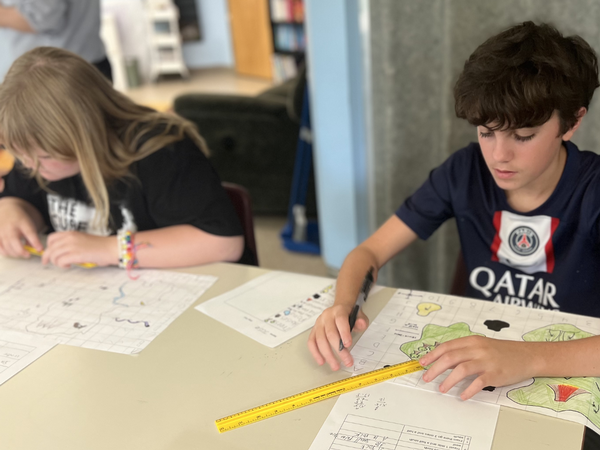Empowering students with language-based learning differences

Siena Blog



The Siena School Blog
Discover, Learn, Celebrate, and Empower
Welcome to Siena's blog, your source for helpful, cutting-edge resources tailored to teachers, parents, and other advocates in the learning differences community. We are dedicated to providing a wealth of curated knowledge spanning various topics, ranging from dyslexia advocacy and awareness to classroom teaching strategies, heritage month profiles, and social and emotional health.
Discover innovative classroom strategies that inspire creativity and foster a love of learning.
Our commitment to social-emotional wellness ensures that we provide valuable insights into healthy student development and self-advocacy.
Discover resources, reading and podcast recommendations, volunteering opportunities, and more for parents in the LD community.
Our important heritage month posts highlight key people, offer reading and podcast recommendations, and more.
College Prep Begins in High School

Avg. read time: 3 min.
Without the guidance of teachers and the Siena community, I wouldn’t have developed the skills and tools necessary for success. - Ozzie, Siena Class of ‘24
A high school curriculum tailored to LD students’ needs is especially important in offering an academically rigorous, supportive learning environment.
We’re taking this opportunity to highlight what Siena offers as part of our regular high school curriculum—such as counseling, test preparation, and overall college readiness—to best prepare our students for their next academic step.
Siena’s high school program at our campuses in Silver Spring, MD, and Oakton, VA, focuses on our mission and supports our high school students and families in various ways.
Preparing High School Students for College and Future Careers
A cornerstone of Siena’s high school curriculum is the multi-year college counseling program and dedicated college counselor and internship coordinator. These deliberate curricular choices guide students through all four years of high school to break down the process of applying to and then attending college.
Highlights of our scaffolded program include:
- Specializing in sciences, arts, or other areas of strength to pursue a particular field of interest in a deep, thoughtful, and rigorous manner
- Exploring potential colleges and majors and making the most of visits from college reps
- Participating in a robust internships program that allows students to follow a field or job opportunity of interest for each year of high school
- Following a structured application timeline with individualized support at each step
- Preparing for standardized tests and guidance on how to help students stand out in their applications
- Writing and revising college application essays as part of class
- Receiving merit scholarship offers (For example, Siena's Class of 2024 was offered $6,704,800 over 4 years in merit scholarships by the various colleges they applied to.)
- Guidance on selecting a supportive learning center at the college level
Such intentional design embeds opportunities for students to explore the interests they are most passionate about in high school. In addition, this develops their overall college preparedness, ranging from how to approach a writing assignment to requesting accommodations and using faculty office hours.
By the end of 10th grade, I [...] had developed strong relationships with both my teachers and peers. This made it easier for me to manage my workload with all the support around me and it made me stretch myself into other opportunities offered by Siena. - Jude, Siena Class of ‘24
College Prep and Admissions Resources
Families wanting to ensure college preparedness can review some recent articles on current college admissions trends, such as:
- Campus to Career Crossroads (2024)
- College Data (2024)
- College Matchpoint 2024
- College Matchpoint 2025
- Passion Prep (2024)
- Top Tier Admissions (2024)
These and other resources typically outline some key skills colleges look for in their applicants, such as collaboration, social awareness, and leadership.
Dyslexia Resources for Families
Families in the LD community can read some recent blog posts about dyslexia, including Dyslexia Reading and Podcast Recommendations and Building Confidence in LD Students.
The Siena School, a national leader in dyslexia education, serves bright, college-bound students with language-based learning differences on DC Metro area campuses in Silver Spring, MD (grades 3-4 and 5-12) and Oakton, VA (grades 3-12).
Colleges Want Strong Applicants: What are They Looking For?

As high school students adapt their admissions profiles to what colleges are looking for in 21st century learners, it’s increasingly important for them to adopt appropriate work habits now. A recent piece in The Harvard Gazette examines some key traits—such as “self-awareness, curiosity, diligence, perspective-taking, social awareness, and collaborative skills”—that admissions offices are privileging over grades and test scores. How can high school start developing habits that prepare them for college?
Developing Skills and Independence for College
Schools that integrate college and career prep into their high school curricula can help students develop important organization, executive functioning, and independent work skills. The Siena School helps prepare high school students for college work habits through its internship program. Siena’s internship program enables students to choose a new internship annually to explore various career interests, allowing for direct experience to develop these important 21st-century skills that colleges look for, among them:
- Collaboration and acting on feedback
- Communication and professionalism
- Time management
- Self-advocacy and independence
- Problem-solving
Internships enhance high school students’ college and career readiness by giving them hands-on experience in various job roles and tasks. Siena also teaches students to self-advocate and use all available tools and strategies, so high school students have plenty of practice advocating for themselves, prior to earning their independence in college.
A few key parts of self-advocacy are self-awareness, resiliency, and diligence, skills that can carry students through high school and college. Watch this recent Siena graduate share some of his experiences in writing at the collegiate level:
Using tools and strategies such as paragraph planners and highlighting key information when reading aided in his successful transition to college.
“College admission professionals recognize the value of empathy, resilience, honesty, and other attributes in assessing applicants and shaping their classes”
A key part of high school at Siena is teaching students to find the balance between homework, independence, leadership, college counseling, internships, service learning, electives, and athletics. Students will have to balance multiple responsibilities in college independently. Important executive functioning skills need to be honed and practiced to deal with deadlines, setting office hours, problem solving, self-management, and focus. It is best to practice exploring strategies that will work in high school to then carry to the next level.
“More colleges are moving away from accepting students who did the most ‘stuff’ to looking for those who focus their energy in specific areas that they’re passionate about.”
Siena’s senior independent project is designed to simulate the experiences that students will face after graduation. They research a topic that they are passionate about and then they write drafts of a final paper. This allows teachers to provide feedback on students' writing and see how well they use the tools and strategies (color-coded planners, editing checklists, etc.) they have learned at Siena. Students practice creativity, brainstorming, and self-reflection during the process, meeting deadlines, attending office hours, and calendar planning.
The main goal of the reflection is to clarify students’ strengths and weaknesses in preparation for work and school while they still have time to practice and gain support and feedback from teachers. It is also a chance for students to build their learning around their own interests and incorporate their strengths and creativity into their work. For some, it has led to the creation of side businesses and/or the development of lifelong hobbies and creative projects.
“What you do outside the classroom reveals a lot about you. Admission officers want to know what you’ve learned and how you’ve grown from participating in these activities.”
A decade or more ago, accumulating tasks, extracurriculars, or accomplishments for a college application might have been enough to be accepted. Now, though, admissions offices are valuing both character and meaningful extracurriculars for new applicants. Have students shown leadership potential and initiative? A willingness to take risks? A sense of social responsibility and commitment to service?
Siena’s curricular and extracurricular programs highlight character development, helping others, peer leadership, and more. In the Peer Mediator program, high school students—after teacher recommendation and training to develop active listening and problem-solving skills—meet with other students who have an individual problem and help them brainstorm solutions and ultimately a solution that works for all parties involved. As well, in the Siena Ambassador program high school students volunteer to mentor new students and help these students transition to the Siena community.
Admissions and campus visits continue to adapt to 21st century learning styles and needs. For more on how high school students can enhance their college readiness now, see The Siena School blog for posts about virtual college tours and tips for writing in high school and in college.
Learn more about tools and strategies that Siena employs to address executive functioning, organization, and independent work for students at the Twice Exceptional (2e) educators’ conference on January 25, 2021.
Resources for College Admissions in 2020-2021
- U.S. News and World Report, “What Colleges Look For” (2020)
- National Association for College Admission Counseling, “Colleges Consider Student Character Traits in Admissions Decisions” (2020)
- College Choice, “What Colleges are Looking For in a Successful Applicant” (2020)
- Harvard Gazette, “Will Coronavirus Change College Admissions?” (2020)
- CNBC, “315 College Deans Detail What They Are Looking For from Applicants during the Pandemic” (2020)
- College Board, “Extracurriculars Matter — To You and To Colleges” and “Character Counts: What Are Colleges Looking For?”
- College Board, “Applying 101”
- Times Higher Education, “Top 7 Qualities Universities Look for in Student Applicants” (2017)
College-Level Writing Tips

It’s always important for high school students to think about the skills, mindsets, and habits they’ll need as their academic careers advance. With many activities and events still canceled, this summer presents a good learning opportunity: high school students can take the time to build their writing and related skills to carry them through next fall.
Learning How To Write in College
Before coming to Siena, I was an English and First-Year Writing professor in the Washington, DC, area for 15 years, so I’ve worked with a lot of students on their approaches to writing and research. The most important thing that new college students can do is this: be open to learning the new and, sometimes, unlearning the old. I always reminded students on the first day of class that what worked well in high school wouldn’t necessarily work as well in college. This learning/unlearning ranges from time management and working independently, to structuring papers and performing online research.
In The Siena School's summer writing workshops for rising 9th–11th graders, Siena’s English teacher Maya Furukawa will focus on learning the steps in writing through multisensory strategies, graphic organizing, and assistive technology to compose persuasive writing while applying feedback to proofread and edit one’s own work. This summer could be an excellent opportunity to learn without the pressure of a grade, as this workshop will focus on skill building.
Developing Writing Skills in High School
Here are some more tips for writing in college, although it’s never too early for high school students to start developing their writing skills and work habits, as well as hone their skills in preparation for the next level:
![]() Embrace the processes of writing and research: note taking, outlining, planning, scheduling, brainstorming, drafting, reviewing, and revising. These are all important steps in the journey from idea to a finished project, and they can’t be done in a day. Always give the process time to develop. If an assignment is due in three weeks, use the three weeks to plan and draft it. Taking breaks in the course of a day, weekend, or week helps ensure quality writing. Bookmark these resources from the University of Chicago, Psychology Today, and Oregon State University to learn about how breaks help writers process information and improve their writing output.
Embrace the processes of writing and research: note taking, outlining, planning, scheduling, brainstorming, drafting, reviewing, and revising. These are all important steps in the journey from idea to a finished project, and they can’t be done in a day. Always give the process time to develop. If an assignment is due in three weeks, use the three weeks to plan and draft it. Taking breaks in the course of a day, weekend, or week helps ensure quality writing. Bookmark these resources from the University of Chicago, Psychology Today, and Oregon State University to learn about how breaks help writers process information and improve their writing output.
![]() Remember that A’s and other consistent successes in high school will not easily translate to A’s in college. Even if, for example, an assignment can be done all in one sitting the night before it’s due, there are no guarantees about its quality or fit for the rubric. Rushed writing also leads to avoidable errors (e.g., spelling, overlong paragraphs, wrong details, and missing citations) that affect assignment grades.
Remember that A’s and other consistent successes in high school will not easily translate to A’s in college. Even if, for example, an assignment can be done all in one sitting the night before it’s due, there are no guarantees about its quality or fit for the rubric. Rushed writing also leads to avoidable errors (e.g., spelling, overlong paragraphs, wrong details, and missing citations) that affect assignment grades.
![]() For students who’ve been taught the AP Essay format, be prepared to leave it in high school and upgrade your writing approaches. It’s designed as something to write all in one sitting without books or notes to consult, which is virtually the opposite of a college paper or other assignment. Think about it like an app that isn’t compatible with a new phone—the app worked well when it needed to, but now it’s time for something more advanced.
For students who’ve been taught the AP Essay format, be prepared to leave it in high school and upgrade your writing approaches. It’s designed as something to write all in one sitting without books or notes to consult, which is virtually the opposite of a college paper or other assignment. Think about it like an app that isn’t compatible with a new phone—the app worked well when it needed to, but now it’s time for something more advanced.
![]() Read the syllabus and assignment handouts closely, and then reread and review them when working. Professors sometimes give specific instructions on them that they don’t fully explain in class about the assignment length, number and type of sources to use, and format. Remember that professors still hold students responsible for following instructions even if they weren’t explicitly addressed in class.
Read the syllabus and assignment handouts closely, and then reread and review them when working. Professors sometimes give specific instructions on them that they don’t fully explain in class about the assignment length, number and type of sources to use, and format. Remember that professors still hold students responsible for following instructions even if they weren’t explicitly addressed in class.
![]() Always make sure to have whatever notes or book(s) needed for a writing assignment close by—preferably close enough to grab easily. Avoid trying to quote from memory or generally describing something from a book when a quote or something else concrete is better. Notes and books are especially great tools when they’re reread, so don’t hesitate to review a passage or chapter before writing about it.
Always make sure to have whatever notes or book(s) needed for a writing assignment close by—preferably close enough to grab easily. Avoid trying to quote from memory or generally describing something from a book when a quote or something else concrete is better. Notes and books are especially great tools when they’re reread, so don’t hesitate to review a passage or chapter before writing about it.
![]() Don’t hesitate to ask questions, but remember that professors might not give all the guidance or answers. They might ultimately expect students to figure out most of a problem independently after giving some advice. If students have questions about an assignment on Day 1 of working on it, they should ask them on Day 1.
Don’t hesitate to ask questions, but remember that professors might not give all the guidance or answers. They might ultimately expect students to figure out most of a problem independently after giving some advice. If students have questions about an assignment on Day 1 of working on it, they should ask them on Day 1.
![]() Use professors’ office hours—and not just during the week an assignment is due. In general, professors—especially first-year writing ones—like seeing students plan and outline their work, so meeting with one to talk through ideas and drafts can be helpful. It also shows good motivation and self-advocacy.
Use professors’ office hours—and not just during the week an assignment is due. In general, professors—especially first-year writing ones—like seeing students plan and outline their work, so meeting with one to talk through ideas and drafts can be helpful. It also shows good motivation and self-advocacy.
![]() Use all the available resources the college or university offers, such as the Writing Center and Disability Support Services. It’s always a good idea to look into academic support options as early as possible to avoid the beginning-of-semester rush.
Use all the available resources the college or university offers, such as the Writing Center and Disability Support Services. It’s always a good idea to look into academic support options as early as possible to avoid the beginning-of-semester rush.
![]() Understand that writing and editing are two discrete processes, so avoid the trap of trying to self-edit while writing. Scheduling your work is a great way to keep your writing and editing separate since it gives you ample time to do them. Write first to express thoughts, and then go back to edit, expand, and clean up. Reading papers out loud when editing is a great way to notice errors, SpellCheck misses (e.g., “defiantly” instead of “definitely”), long and awkward sentences or paragraphs, and other issues that affect an assignment’s grade. Using assistive technology like Read & Write and NaturalReader to have documents read aloud can also help students catch errors or awkward writing. (See this resources page from the University of Michigan for more options.)
Understand that writing and editing are two discrete processes, so avoid the trap of trying to self-edit while writing. Scheduling your work is a great way to keep your writing and editing separate since it gives you ample time to do them. Write first to express thoughts, and then go back to edit, expand, and clean up. Reading papers out loud when editing is a great way to notice errors, SpellCheck misses (e.g., “defiantly” instead of “definitely”), long and awkward sentences or paragraphs, and other issues that affect an assignment’s grade. Using assistive technology like Read & Write and NaturalReader to have documents read aloud can also help students catch errors or awkward writing. (See this resources page from the University of Michigan for more options.)
Learning to write well is a lifelong process. Teachers, professors, and tutors are continually developing their approaches to writing, research, and revision. Remember, too, that no parental communication with professors might be a big adjustment in college, so be prepared to self-advocate and be independent.
The more that students can start preparing themselves for writing and managing their time in college now, the more likely they are to succeed once the first assignment is due.
